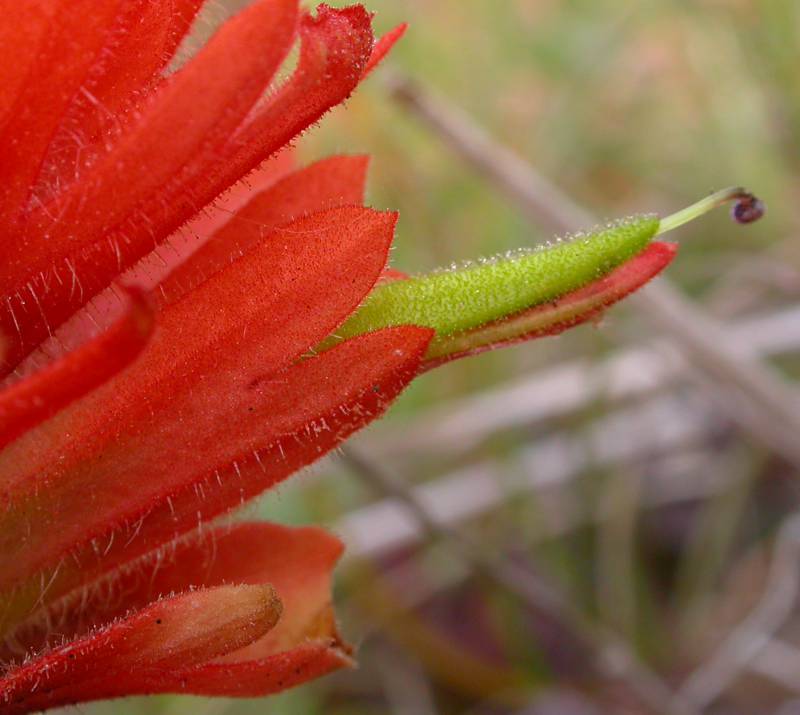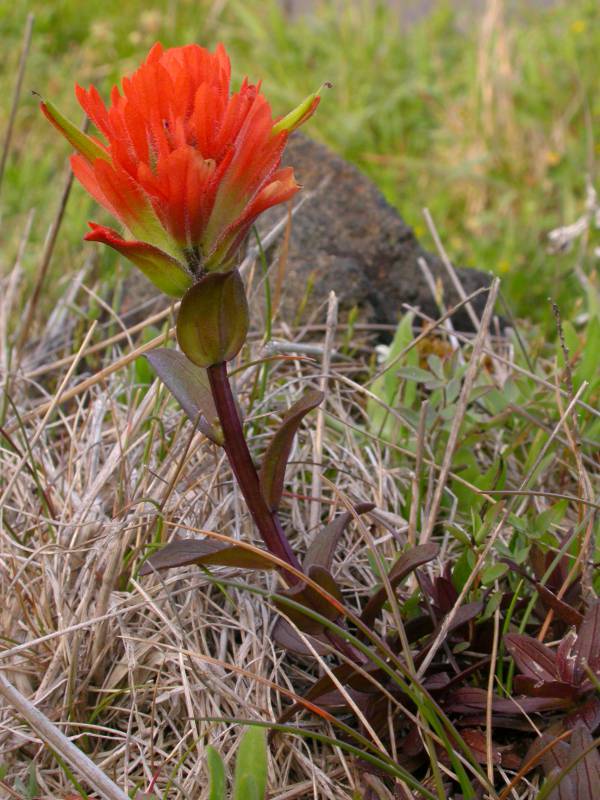Castilleja miniata
Castilleja miniata var. dixonii
common paintbrush, scarlet paintbrush
Dixon's paintbrush
Simple, narrow with pointed tip;
inflorescence leaves and bracts bright red, sometimes with a few small lobes.
Inconspicuous, greenish, tubular flowers, surrounded by a much showier bright red calyx and inflorescence bracts.
2-celled capsules with many seeds.
Our most common Castilleja in the mountians.
Castilleja miniata
Castilleja miniata var. dixonii
Occurring on both sides of the Cascades crest in Washington; Alaska to California, east to the Rocky Mountains and Great Lakes region.
Occurring west of the Cascades crest in Washington; southwestern British Columbia to northwestern Oregon.
- Local floras:
BC,
CA,
OR,
WA
- Local Web sites:
CalFlora,
CalPhotos,
Flora NW,
PNW Herbaria,
Turner Photog.
WildflowerSearch
iNaturalist (observations)
USDA Plants Database
- LBJ Wildflower Center
- SEINet
- Plants of the World Online
- Encyclopedia of Life
- Wikipedia
- Google Image Search
- Local floras:
BC,
OR,
WA
- Local Web sites:
Flora NW,
PNW Herbaria
WildflowerSearch
iNaturalist (observations)
USDA Plants Database
- LBJ Wildflower Center
- SEINet
- Plants of the World Online
- Encyclopedia of Life
- Wikipedia
- Google Image Search



